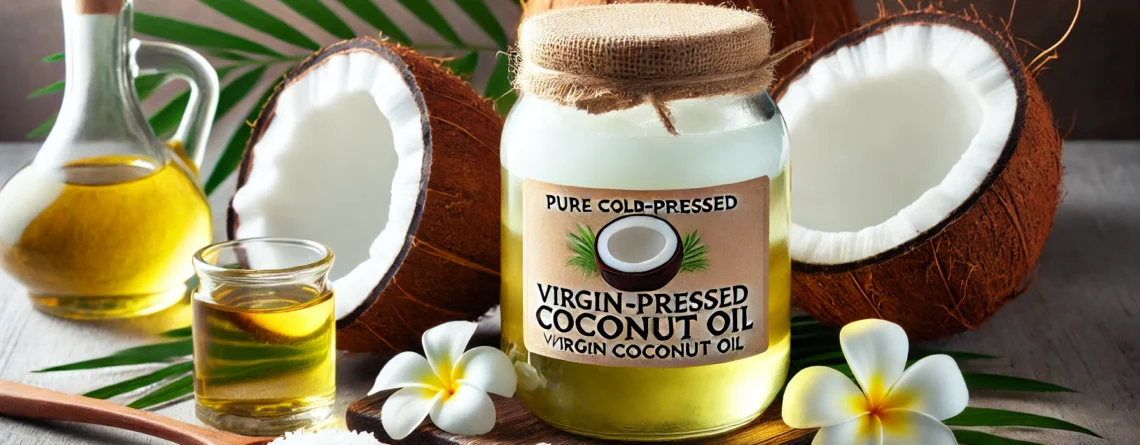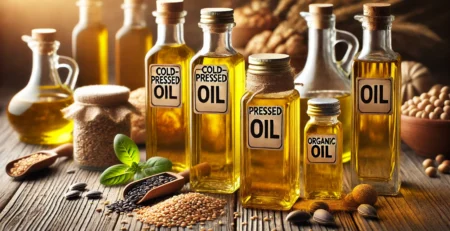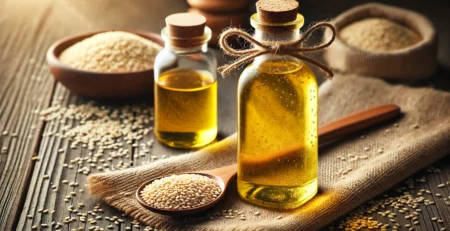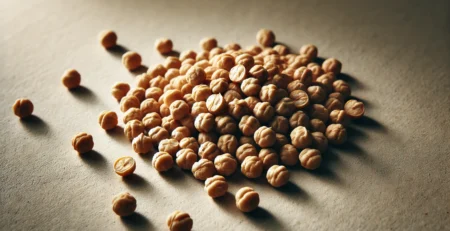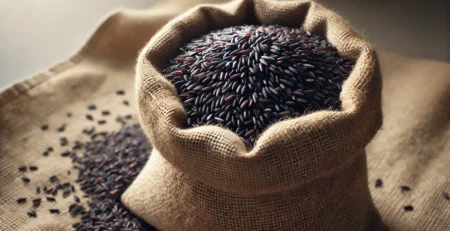Virgin Coconut Oil Cold Pressed Process: The Ultimate Guide
Virgin Coconut Oil Cold Pressed Process: The Ultimate Guide
Virgin Coconut Oil (VCO) extracted through the cold-pressed method has gained tremendous popularity for its purity, health benefits, and versatile uses. Unlike refined coconut oil, VCO retains all its natural nutrients, making it one of the most beneficial oils for culinary, beauty, and health applications. In this comprehensive guide, we’ll explore everything you need to know about virgin coconut oil, the cold-pressed extraction process, and its benefits.
1. Introduction to Virgin Coconut Oil
Virgin coconut oil is the unrefined, unprocessed oil derived from fresh coconut milk. It differs from refined coconut oil, which is extracted from dried coconut (copra) and typically undergoes high heat and chemical processing. The key advantage of virgin coconut oil is that it retains the natural flavor, aroma, and nutritional benefits of raw coconut.
Virgin coconut oil is widely used for:
- Culinary purposes: as a cooking oil, in baking, and as a flavoring.
- Health benefits: as a dietary supplement for weight loss, immune support, and heart health.
- Beauty: for skincare, hair care, and natural remedies.
Virgin coconut oil is primarily extracted through the cold-pressed process, which ensures the preservation of nutrients and bioactive compounds.
2. The Cold Pressed Process for Extracting Virgin Coconut Oil
The cold-pressed method is one of the most preferred processes for extracting virgin coconut oil due to its ability to maintain the oil’s purity, nutrients, and antioxidants. Unlike heat-extracted oils, cold-pressed oils are extracted at lower temperatures, typically below 50°C (122°F), ensuring minimal degradation of the coconut’s natural properties.
2.1 Step-by-Step Cold Pressed Process
The cold-pressed process involves several stages:
Step 1: Selection of Fresh Coconuts
- Only mature, freshly harvested coconuts are selected for virgin coconut oil production.
- These coconuts are cracked open to access the meat (kernel), which is rich in natural oils.
Step 2: Grating of Coconut Meat
- The white meat of the coconut is grated into fine pieces. This step increases the surface area for better extraction of coconut milk.
- High-quality coconuts will have thick, firm meat, contributing to a higher yield of oil.
Step 3: Cold Extraction of Coconut Milk
- The grated coconut is pressed to extract coconut milk. This is done without heat to prevent the breakdown of essential nutrients.
- In some cases, the coconut milk may be extracted twice to ensure maximum oil yield.
Step 4: Separation of Oil from Coconut Milk
- The coconut milk is then left to sit or undergo mechanical centrifugation to separate the oil from the water and solids.
- Centrifugal Separation: This method spins the coconut milk at high speeds, causing the heavier water to separate from the lighter oil.
Step 5: Filtration
- Once the oil is separated, it is passed through a filtration process to remove any remaining impurities or particles.
- The final product is pure, unrefined virgin coconut oil with a light, smooth texture and a mild coconut flavor.
3. Benefits of Cold Pressed Virgin Coconut Oil
The cold-pressed extraction process ensures that virgin coconut oil retains its numerous health benefits. Here’s a closer look at why cold-pressed virgin coconut oil is so revered:
3.1 Rich in Lauric Acid
Lauric acid, a medium-chain fatty acid (MCFA), makes up nearly 50% of virgin coconut oil. It is known for its:
- Antibacterial and Antiviral Properties: Lauric acid is highly effective in fighting pathogens like bacteria, viruses, and fungi. It can also help support immune function.
- Support for Heart Health: Studies have shown that lauric acid may help increase “good” HDL cholesterol levels while maintaining or reducing “bad” LDL cholesterol, thus promoting cardiovascular health.
3.2 Antioxidant Protection
Cold-pressed virgin coconut oil is rich in antioxidants, which help neutralize free radicals that can damage cells and cause premature aging. These antioxidants also support the body’s natural defenses, improving overall health.
3.3 Boosts Metabolism and Weight Loss
VCO contains medium-chain triglycerides (MCTs), which are quickly metabolized by the liver and converted into energy rather than being stored as fat. This can:
- Boost Metabolism: MCTs provide an immediate energy source and are believed to increase calorie burning.
- Aid in Weight Loss: Consuming VCO as part of a balanced diet may help reduce hunger and support weight management by promoting fat burning.
3.4 Improves Skin and Hair Health
VCO is widely used in the beauty industry for its moisturizing, nourishing, and healing properties:
- For Skin: Virgin coconut oil is an excellent moisturizer for dry skin. It helps lock in moisture and can treat conditions like eczema, psoriasis, and dermatitis.
- For Hair: Applying VCO to the scalp and hair promotes hair growth, strengthens hair shafts, and reduces dandruff.
3.5 Digestive Health and Gut Support
VCO’s antimicrobial properties can improve gut health by killing harmful bacteria and promoting a balanced microbiome. It also supports the absorption of fat-soluble vitamins such as A, D, E, and K.
4. Differences Between Cold-Pressed and Refined Coconut Oil
It’s important to understand the differences between cold-pressed virgin coconut oil and refined coconut oil:
4.1 Cold-Pressed Virgin Coconut Oil
- Extraction Method: Produced using fresh coconut meat and cold-pressed at low temperatures to preserve nutrients.
- Nutrient Content: High in antioxidants, MCTs, and lauric acid. Retains the coconut’s natural flavor and aroma.
- Uses: Ideal for raw consumption, cooking at low to medium heat, skincare, and hair care.
4.2 Refined Coconut Oil
- Extraction Method: Typically extracted from dried coconut (copra) and undergoes heat and chemical processing to refine the oil.
- Nutrient Content: Lower in antioxidants and MCTs. Often has no flavor or aroma due to refining.
- Uses: Suitable for high-heat cooking, but lacks the nutritional and health benefits of cold-pressed virgin coconut oil.
5. Uses of Cold-Pressed Virgin Coconut Oil
The versatility of cold-pressed virgin coconut oil extends to many areas of life, from cooking to personal care. Here are some of the most common uses:
5.1 In Cooking
Virgin coconut oil is ideal for low to medium-heat cooking due to its smoke point of approximately 350°F (177°C). It can be used in:
- Baking: Replace butter or other oils with virgin coconut oil in cakes, cookies, and breads.
- Sautéing: Use it to sauté vegetables, meat, or seafood for a delicious coconut-infused flavor.
- Smoothies: Add a tablespoon to your smoothie for a nutritious boost of healthy fats.
- Salad Dressings: Mix it with vinegar or lemon juice for a simple and healthy dressing.
5.2 For Skin Care
Cold-pressed virgin coconut oil is a popular ingredient in natural skincare routines:
- Moisturizer: Apply it directly to the skin to hydrate and nourish.
- Makeup Remover: Gently removes makeup, including waterproof mascara.
- Lip Balm: Protects and soothes dry, chapped lips.
5.3 For Hair Care
- Deep Conditioning: Apply VCO to your hair and leave it on as a deep conditioning treatment for soft, shiny hair.
- Scalp Treatment: Massage into the scalp to promote hair growth and reduce dandruff.
5.4 Oral Health
The practice of oil pulling, where a tablespoon of virgin coconut oil is swished around the mouth for 15-20 minutes, is believed to improve oral hygiene, whiten teeth, and reduce harmful bacteria in the mouth.
5.5 In Natural Remedies
VCO is widely used as a home remedy for various health conditions, including:
- Soothing Burns: Applying VCO to minor burns or sunburns helps reduce inflammation and speeds healing.
- Healing Wounds: Its antibacterial properties promote faster wound healing and prevent infection.
6. How to Identify High-Quality Virgin Coconut Oil
With the growing popularity of virgin coconut oil, it’s essential to ensure that you’re purchasing a high-quality product. Here are some tips for choosing the best cold-pressed virgin coconut oil:
6.1 Look for “Cold-Pressed” on the Label
Ensure that the label specifies “cold-pressed” or “cold-process” to confirm that the oil was extracted without heat, retaining its full range of nutrients.
6.2 Check the Color and Texture
High-quality virgin coconut oil should be clear and liquid at temperatures above 76°F (24°C) and solid below this temperature. It should have a smooth texture, free of any cloudiness or particles.
6.3 Aroma and Taste
Cold-pressed virgin coconut oil should have a pleasant, mild coconut aroma and flavor. If the oil lacks this scent or tastes bland, it may be refined or mixed with other oils.
6.4 Packaging
Look for virgin coconut oil in dark glass jars or BPA-free plastic containers to protect the oil from light exposure, which can degrade its quality over time.
7. Conclusion: Why Cold-Pressed Virgin Coconut Oil is the Best Choice
Cold-pressed virgin coconut oil is one of the purest and healthiest oils available, retaining its natural nutrients, Cold-pressed virgin coconut oil is one of the purest, most nutrient-rich oils available today. The process preserves the natural properties of raw coconut, ensuring a product rich in lauric acid, antioxidants, and medium-chain triglycerides (MCTs). With numerous health benefits, cold-pressed virgin coconut oil supports heart health, boosts metabolism, strengthens the immune system, and promotes healthy skin and hair. It’s also used in cooking, skincare, and even natural remedies. Choosing cold-pressed over refined oil ensures maximum retention of nutrients and quality.


